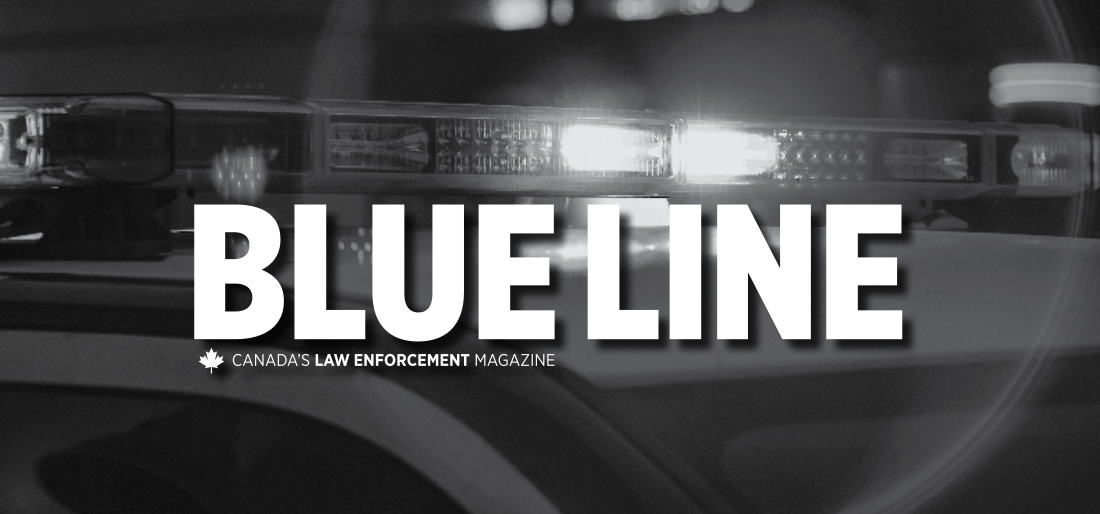
Features
Opinion
Police and religion: Why religious literacy is important for all law enforcement members
April 7, 2023 By Brian Carwana

Hateful graffiti painted on mosques, gurdwaras and synagogues is just one of the outward signs of the rising incidences of religiously based conflicts and hate crimes happening in our communities.
It isn’t news that police services across the country are working with increasingly diverse communities. To serve these communities well, officers should have religious literacy. Knowing something about the practices, customs and beliefs of Canada’s religious communities helps open the doors to trusting relationships. The challenge is that, in Canada, we rarely talk about religion and many of us know of only one religion, or none at all. For many reasons, that needs to change.
We’ve never been more diverse
Canada is diverse, but we underestimate how diverse it really is. Did you know that compared to the United States, on a per capita basis Canada is home to twice as many Buddhists, 2.5 times as many Hindus, four times as many Muslims and perhaps 12 times as many Sikhs? Even compared to other pluralistic liberal democracies, Canada is considered a very diverse place, and we are becoming more diverse all the time. The proportion of Hindus, Sikhs and Muslims all doubled in the past 20 years. Whatever community you serve, it is likely more diverse than ever and it will only continue to grow.
Rates of rising xenophobia and hate crimes
Despite many admirable efforts to create inclusive communities, our communities are experiencing a backlash of right-wing nationalism and rising hate-crimes. In Canada, hate crimes surged almost 50 per cent in 2017.1 The key driver: an almost doubling (83 per cent increase)2 in religious hate crimes, including that year’s most infamous crime when six Muslims were murdered in a Quebec City mosque, who were executed while praying.
Unfortunately, in 2020, hate crime increased by 30 per cent more compared to the previous high in 2017.3 Again in 2021, hate crimes increased by another 25 per cent.4 This was driven partly by an astonishing 67 per cent5 increase in religious hate crimes, including the year’s most notorious incident when a Muslim family in London, Ont., was run over and murdered while standing on a street corner.
While not garnering as many headlines, in the span of just three months 2021, seven different Muslim women were reportedly kicked, beaten and punched in just one province—Alberta.6 Crimes like these erode a community’s sense of safety and inclusion and can embolden others who want to cause harm, which can lead to copycat attacks and hate crimes.
As a Muslim police friend of mine once said, “A regular crime affects an individual, but a hate crime affects a community.” If someone steals a bike, the owner is affected and they know the target was the bike. But in a hate crime, the target is you. It’s personal and visceral.
Too often, our response to these issues is silence
Despite growing religious diversity and surging hate crimes, our response in Canada is…we don’t want to talk about it, because we don’t know how. We lack education on religion. We often don’t feel conversant and if we were taught anything on religion, we were probably told to avoid the topic.
While our community leaders will often publicly condemn hate crimes, this is only one piece of the puzzle. To create truly safe and inclusive communities for people from all religions, our public servants—including police officers—need to be able to connect authentically and without the hesitation that sometimes comes from not knowing enough to be comfortable.
Possible solutions
Religious literacy requires education and exposure to diversity. If your service has diversity, equity and inclusion training, ask that this training includes classes or programs about various religions.
Officers can also take part in external learning opportunities. CPKN has a few video modules on religion which are quite well done, and there are other training opportunities available.
Practice interrupting our own internal biases. We all have them and the more we recognize them, the less power they hold in our responses to situations.
Open conversations with fellow officers. Talking about religious holidays is an excellent way to learn more about the practices of diverse communities.
Where possible, attend local religious communities’ celebrations, open houses and outreach efforts. There are many festivals where religious communities welcome the public to visit and learn.
Expand your circle of influence by curating diversity in the movies or television programs you want, the books and materials you read and the voices you follow on social media.
References
- https://www150.statcan.gc.ca/n1/daily-quotidien/181129/dq181129a-eng.htm
- https://www150.statcan.gc.ca/n1/daily-quotidien/181129/dq181129a-eng.htm
- The 30% figure is calculated by dividing the 2020 hate crime number of 2669 (found here: https://www150.statcan.gc.ca/n1/pub/85-002-x/2022001/article/00005-eng.htm) from the prior 2017 record of 2073 (found here: https://www150.statcan.gc.ca/n1/pub/85-002-x/2022001/article/00005-eng.htm).
- https://www150.statcan.gc.ca/n1/pub/85-002-x/2022001/article/00013-eng.htm
- https://www150.statcan.gc.ca/n1/pub/85-002-x/2022001/article/00013-eng.htm. See the 8th bullet point in the summary gray box at the top of the page.
- https://globalnews.ca/news/7721850/hate-crime-alberta-attacks-black-muslim-women/
Brian Carwana is the Executive Director of Encounter World Religions which has been providing religious literacy programs to communities, businesses, and organizations, including police services, for more than 20 years. Encounter is hosting a three-day experiential Police Religious Literacy Program at the Toronto Police College this May. Visit worldreligions.ca/police-discovery-program to learn more and to download free educational resources.
Print this page